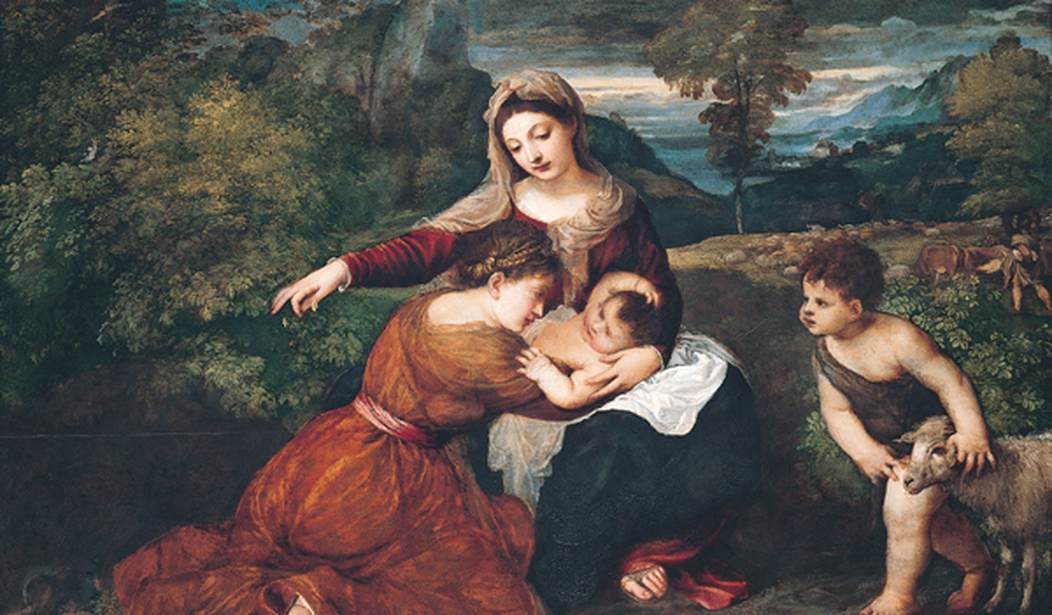Note: I will be busy this weekend with church-related activities and will not be able to write a new reflection. Please enjoy this reflection from 2020 on the same readings today.
This morning’s Gospel reading is Mark 1:1–8:
The beginning of the gospel of Jesus Christ the Son of God.
As it is written in Isaiah the prophet:
Behold, I am sending my messenger ahead of you; he will prepare your way. A voice of one crying out in the desert: “Prepare the way of the Lord, make straight his paths.”
John the Baptist appeared in the desert proclaiming a baptism of repentance for the forgiveness of sins. People of the whole Judean countryside and all the inhabitants of Jerusalem were going out to him and were being baptized by him in the Jordan River as they acknowledged their sins. John was clothed in camel’s hair, with a leather belt around his waist. He fed on locusts and wild honey. And this is what he proclaimed: “One mightier than I is coming after me. I am not worthy to stoop and loosen the thongs of his sandals. I have baptized you with water; he will baptize you with the Holy Spirit.”
When I was growing up, we would spend part of our summers in Lake Havasu with our cousins. If you know anything about summers and Arizona, you know that the two don’t normally go together in a tourist-campaign kind of way. During the day, it would get to the 120s, and at night it would barely get below 100. It was a dry heat, though, and it wasn’t nearly as oppressive as it sounds. As a kid, the desert (and the leisure activities at the lake) provided a fascinating break from suburban life in Southern California.
Plus, kids being kids, we have many fond memories of our adventures and misadventures in the desert. A certain piece of family lore involves a Big Wheel, a tall driveway, and bare feet. I shall say no more.
Still, as much novelty as deserts might provide visitors, it makes for a harsh environment in which to live. This is particularly true near the Jordan and Jericho, where John the Baptist preached. The desert in that area is one of the harshest inhabited landscapes in the world. The nearby Jordan River provides one of the few lifelines, other than the spring water in Jericho that supports agriculture.
This provides a particularly apt allegory for John the Baptist’s preaching of repentance of sin and preparation for the bounty of salvation. After all, this is our season of preparation — Advent, the preparation for the birth of Christ into the world and into our hearts. Each year at this time, we hear the words of John the Baptist to prepare the way of the Lord, who comes to save us all.
The desert doesn’t just serve as the factual setting for John the Baptist’s ministry, however. In his prophesy, Isaiah sets the call to the Lord out of the desert as well, but takes it further. Not only will this call come out of the desert, but it will transform it, along with the entire world, as Isaiah prophesies in our first reading today:
A voice cries out: In the desert prepare the way of the LORD! Make straight in the wasteland a highway for our God! Every valley shall be filled in, every mountain and hill shall be made low; the rugged land shall be made a plain, the rough country, a broad valley. Then the glory of the LORD shall be revealed, and all people shall see it together; for the mouth of the LORD has spoken.
In this passage, Isaiah speaks very clearly about the transformative power of the Word. When the Lord comes, He changes everything. And note what kind of change takes place in this transformation as well. In some parables, Jesus talks about the first being last and vice versa, the poor changing places with the rich, and the haughty being brought low while the humble are elevated. In Isaiah, the transformation is more specifically an equalization toward a specific end — fruitfulness and bounty. Mountains and hills are not good land for producing crops, and neither are sharp valleys or rough plains.
What does the Lord’s transformation do in Isaiah’s allegorical language? It changes useless territory into productive, life-supporting land. It takes the various forms of deserts and redeems them into bountiful, rich earth where people live in comfort and sufficiency.
This is what the Lord wants to do with our hearts as well. The Gospels and the other scriptures make constant reference to hardened hearts; they become hardened by sin and stubbornness. Rather than produce love, such hearts become deserts of their own where nothing much grows and life becomes extraordinarily hard and wearisome. Those deserts choke off life by denying it the sustenance it needs to truly flourish — the love of God and the welcoming of the Holy Spirit.
The difficulty we have is that sin beguiles us into settling for the desert of hearts based only on self-love. We lose sight of others, turning ourselves into our own petty god and brooking no thought of any higher power. We get lost in the wilderness of sin, with our strength being sapped and the eternal life draining from us without realizing it.
It is from that wilderness of sin that we must prepare a path for the Lord. He calls to us, cries out to us, into those deserts to bring us the life-giving Word. If we allow it, if we prepare a way for the Lord into our hearts, then the Word comes to us like a life-giving river. It can transform our hearts into a place where the Holy Spirit can work its transformative power, changing us through His grace to see our sins and repent of them. That transformation allows true self-giving love to grow, bringing us closer to the Lord and closer to each other as we see His work in everyone else’s presence.
It is that salvation for which Advent prepares us. John the Baptist’s call resonates through the millennia because we all live in the desert at times, and all need to hear that call — whether we know it or not. Prepare ye the way of the Lord … but maybe not the Big Wheel. Just trust me on that. I shall say no more.
The front-page image is ‘The Madonna and Child with a Female Sant and the Infant Saint John the Baptist” by Titian, c. 1530s. On display at the Kimbell Art Museum in Fort Worth, Texas. Via Wikimedia Commons.
“Sunday Reflection” is a regular feature, looking at the specific readings used in today’s Mass in Catholic parishes around the world. The reflection represents only my own point of view, intended to help prepare myself for the Lord’s day and perhaps spark a meaningful discussion. Previous Sunday Reflections from the main page can be found here.








Join the conversation as a VIP Member